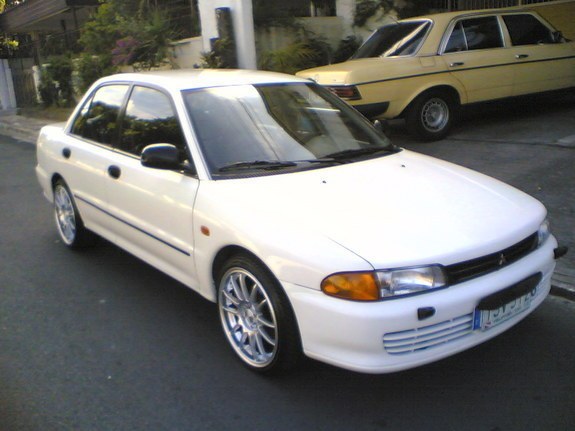1995 Mitsubishi Lancer GLXI upgrades?
 Question: I have a 1995 Mitsubishi Lancer GLXI, fuel injected,what are the things I can do to improve its performance? things I can change and upgrade.. thank you for your time
Question: I have a 1995 Mitsubishi Lancer GLXI, fuel injected,what are the things I can do to improve its performance? things I can change and upgrade.. thank you for your time
Answer:
Not sure if you have the turbocharged version or not but will start out with suggested upgrades for both versions and then touch on the turbo only upgrades…
General upgrades on turbo/non-turbo engine.
1. Intake and exhaust. The basic upgraded which get your engine breathing (intake) and exhaling (exhaust) better. For intake, typically a cold-air kit, which allows the engine to pull from cooler outside air, as opposed to hotter under-hood air is best. Exhaust is usually personal preference, no need to go for exotic materials like titanium but stainless steel will provide longer life. Sound level is a preference, not always an indication of how well the exhaust performs. With all of the suggestions I give, I would check online forums for other owners suggestions. You can sometimes find good advice, group discounts on parts, or even used parts at a good savings.
2. Computer – Most car companies tune their engines for long life and err on the safe side when it comes to timing, fuel curves etc. There may be a chip or add-on tuner which you can add to give your car more performance.
3. Cam shafts – Not sure of your specific engine, but this would be my last recommendation however could be pricey. The camshaft tells the valves when to open and close, by telling the valve to open sooner, or longer you can get more fuel and air in to the engine, this will allow you to make more power. Not the easiest job to replace the camshafts, or the cheapest, so it’s probably the last step.
Now on to the turbo engine (if you have it)
1. I would look at increasing the boost with a boost controller. Most Japanese cars can be adjusted with a manual boost controller or electronic controller without having to mess with the ECU (Engine computer). This can be dangerous turning up the boost too much with the resulting pre-detonation being capable of melting pistons. It’s also possible to turn the boost pressure up too much and out running your fuel injectors. To keep the proper fuel mixture your fuel injectors will have to work extra hard to keep up with the extra air going in to the engine. It’s possible you will need to upgrade the injectors depending on how much boost you want to run.
2. Intercooler: Compressing air in the turbo produces heat, hot air makes less power in your engine since it’s less dense than cool air. A better intercooler will cool down the air after the turbo and allow for more power.
Good luck and let me know if you have any other questions,
 Before you click out! While I know a lot about cars, I don't know a lot about YOUR CAR! A repair manual is essential and I have a way for you to get one FREE.
Before you click out! While I know a lot about cars, I don't know a lot about YOUR CAR! A repair manual is essential and I have a way for you to get one FREE. (Link opens in a new window)
Learn more with our Autoshop101 courses.
Posted: 27th July 2016 | Author: Kevin Schappell | Category: Engine, Exhaust
